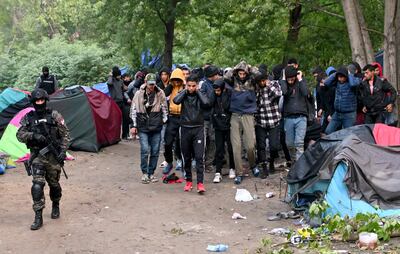Nobody is immune from the emotional trials of life. In this region, the poetry of the Arab world has given us some of the oldest and most poignant expressions of the fact. Describing the narrator's grief at his separation from a partner, the pre-Islamic poet Imru Al Qais wrote: "As I lament thus in the place made desolate, my friends stop their camels; They cry to me 'Do not die of grief; bear this sorrow patiently.' Nay, the cure of my sorrow must come from gushing tears. Yet, is there any hope that this desolation can bring me solace?"
In the 21st century, such feelings might be the same, but the way we approach them has changed. In today's psychological terms, these immortal lines could be read as a description of normal pain. Or, as is often the case with extreme grief, it could be so intense as to be labelled an illness.
World Mental Health Day provides an appropriate moment to reflect on the progress made in this part of the world and the areas where more work is needed.
The 2020 edition of the Arab Barometer found that about 30 per cent of people across the region had experienced depression at some point. In Iraq it is 43 per cent, in Tunisia it is 40 per cent. Parts of the Middle East are experiencing a mental health crisis, which affects everything from its physical health to the economy. The Lancet Commission has estimated that mental illness will cost the world's economy $16 trillion by 2030.

Culture, as is the case in all parts of the world, can often be a barrier to effective treatment. Stigma and ignorance can be so great that even severe problems can go undetected. The association between chronic pain and untreated depression has long been recognised by experts. For many of those living with depression in the Middle East, poor mental health might leave them living with prolonged physical pain, too.
Figures from the World Health Organisation show that the number of people in the UAE seeking help for mental health problems has increased at least six-fold in three years. It is almost certainly the case that this steep rise is because more people view mental health as something that can and does respond to treatment and there is greater awareness of it since the onset of the pandemic. As The National reports today, the infrastructure of support continues to be built out. Greater access to these services – including free help and support lines - also means people are more likely to seek guidance, too.
For parts of the region there are added issues to consider. War, instability, growing drug addiction rates and economic difficulties all play a key role in the crisis. Migration is just one example. The WHO states that asylum seekers tend to be at elevated risk of suicide and that the incidence of psychoses are higher among migrant populations in a number of countries. The UN High Commission on Refugees reports more than 16 million refugees and 60 million displaced people around the world.
Dealing with war, destitution and more might seem like the immediate and necessary priority. But they can only be overcome by a physically and, as is increasingly clear, mentally healthy population.


